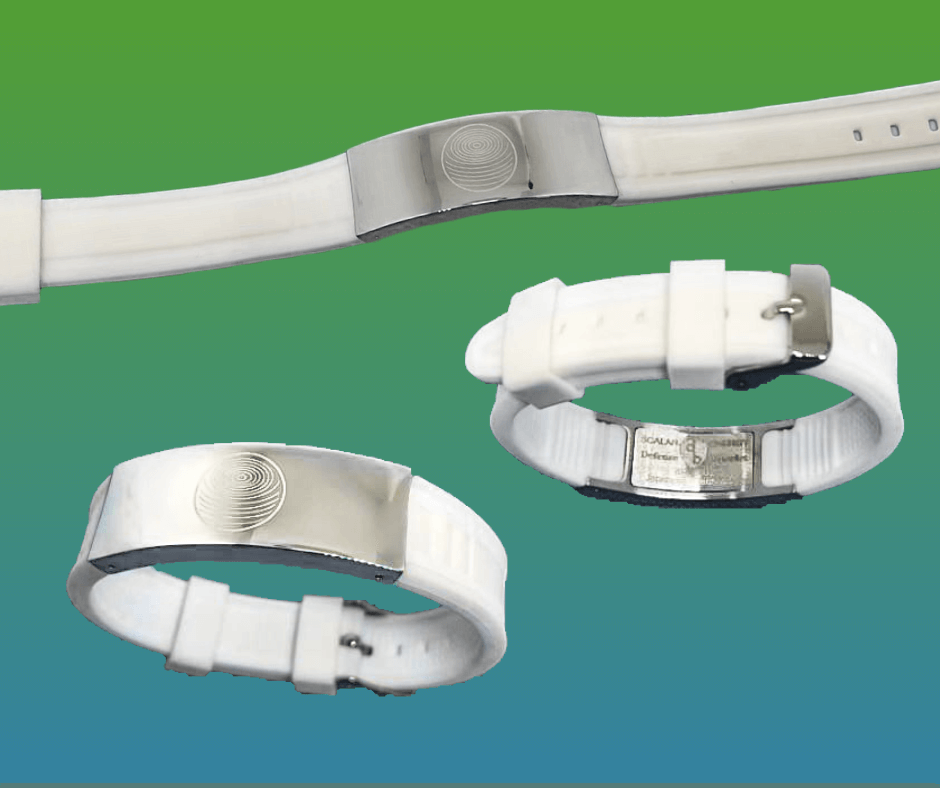Electromagnetic Fields (EMF) are all around us. They are produced by electronic devices, power lines, and even the sun. While EMF radiation is not new, it has become a more pressing concern in recent years due to our increasing reliance on technology. This has led to a lot of confusion and misinformation about EMF radiation and its potential health effects. Let's talk about what EMF radiation is, the latest research about it, the facts and myths, and how one can protect themselves against it.
What is EMF Radiation?
EMF radiation refers to the energy that is emitted by electronic devices and other sources. This energy is composed of both electric and magnetic fields, which are perpendicular to each other and oscillate at right angles. EMF radiation is measured in units called hertz (Hz), which indicates the number of oscillations per second.
There are two types of EMF radiation: ionizing and non-ionizing. Ionizing radiation has enough energy to remove electrons from atoms or molecules, causing damage to DNA and potentially leading to cancer.
Examples of ionizing radiation include X-rays and gamma rays. Non-ionizing radiation, on the other hand, does not have enough energy to cause these types of damage. Examples of non-ionizing radiation include radio waves, microwaves, and visible light.
The Latest Research about EMF Radiation
The World Health Organization (WHO) and the International Agency for Research on Cancer (IARC) have classified EMF radiation as a possible carcinogen. However, the research on the health effects of EMF radiation is still ongoing, and there is no definitive evidence linking it to cancer or other health problems.
In 2018, the National Toxicology Program (NTP) released a study that showed an increase in the incidence of heart tumors in male rats exposed to high levels of radiofrequency radiation, a type of non-ionizing radiation. However, the study did not show an increase in brain tumors, which had been a concern due to the proximity of cell phones to the head during use. The study has been criticized for various limitations, including the use of only male rats and the high levels of radiation used.
Facts and Myths about EMF Radiation
There are many misconceptions about EMF radiation, so it is important to separate the facts from the myths.
Here are some of the most common:
- Myth: EMF radiation from cell phones can cause brain cancer.
- Fact: There is no conclusive evidence linking EMF radiation from cell phones to brain cancer.
- Myth: EMF radiation from power lines can cause leukemia.
- Fact: Studies have not shown a consistent link between EMF radiation from power lines and leukemia.
- Myth: EMF radiation from electronic devices can cause infertility.
- Fact: There is no evidence linking EMF radiation from electronic devices to infertility.
- Myth: EMF radiation is always harmful.
- Fact: While some studies have suggested potential health risks, the evidence is not conclusive, and many sources of EMF radiation are considered safe.
How to Protect Yourself against EMF Radiation
While the health effects of EMF radiation are still uncertain, there are some steps you can take to reduce your exposure:

- Use a headset or speakerphone when using your cell phone, especially if you are making a long call.
- Keep your electronic devices away from your body when possible, such as in a bag or on a table.
- Use a wired internet connection instead of Wi-Fi when possible.
- Avoid using electronic devices in bed, as they can interfere with your sleep.
- Limit your use of electronic devices when possible.
EMF radiation is a topic of ongoing research and debate. While there is no conclusive evidence linking it to cancer or other health problems, it is still a good idea to take precautions to reduce your exposure. By following the steps outlined above, you can minimize your exposure to EMF radiation and potentially reduce any potential risks. It is important to stay informed about the latest research and developments in this area, as our understanding of EMF radiation and its potential health effects continues to evolve.
If you want to learn more about EMF radiation and how to protect yourself against it, there are many resources available online. The National Institute of Environmental Health Sciences and the World Health Organization both provide information on EMF radiation and its potential health effects.
You can also find a variety of products on the market designed to reduce your exposure to EMF radiation, such as EMF blocking phone cases and laptop shields.
While the research on the health effects of EMF radiation is still ongoing, it is always a good idea to take precautions to reduce your exposure. By staying informed and taking steps to minimize your exposure to EMF radiation, you can help ensure that you and your family stay healthy and safe in our increasingly digital world.






